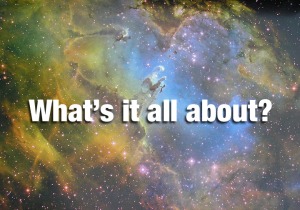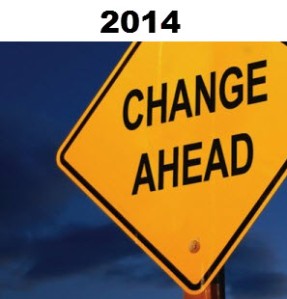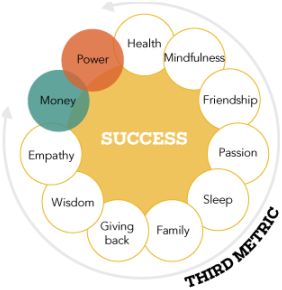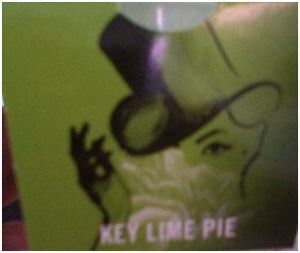A poet I hold dear (ee cummings) wrote: “I am abnormally fond of that precision which creates movement.”
Why does it takes so little to confound, confuse and perplex most people?
How on earth can a bosses’ unkind word, an acquaintance’s slight, a looming deadline, an overly large agenda, an unconsciously tight timetable, a lousy husband, disappointing child, any younameit–generate the sort of angst that results in debilitating anxiety? It’s a forest and trees situation. People are lost in the forest. They have lost sight of (or never had) a mapped out journey. Finding themselves confronted by a sea of trees, with no discernible way out they are thus overwhelmed. Some of you may say that this perspective is a Polly Anna perspective (for those born after 1950, look her up). First, yes, it can be viewed through that lens. But be sure of this, the theory espoused here has had a host of opportunities in my own world to be put through the rigors of serious testing. It is Pollyannic because I take the view that the earth shattering things in life generally do not appear in the guise of miscreant relatives, spouses, bosses, neighbors or events but in the contemplation of things that threaten it (life) or threaten to alter it considerably.
While some may say this is a doomsday approach, in fact it is quite the opposite. If, for example, you believe that an asteroid might crush the planet and reduce those who survive to life as it may have been thousands of years ago (doomsday for sure)–and therefore measure all crises by that stick, you are apt not to get seriously overwhelmed by life’s every day distresses. Perhaps the preoccupation with things that seem big is part of humankind’s way of coping and passing time. As Virgil said: “Sed fugit interea, fugit irreparabile tempus, singula dum capti circumvectamur amore”, translated: “But meanwhile it flees: time flees irretrievably, while we wander around, prisoners of our love of detail.”
For those for whom the process of deciphering between what matters and what will pass I offer this: The fix for nearly every man-made obstacle or crisis is: time. If time will heal the wound, if time will present and ultimately demonstrate one’s ability to emerge from a crisis or problem then, in fact, the crisis at hand is not only not overwhelming it can be said to be a “mere”— as in, merely a momentary setback, merely a condition (and likely temporary in the large scheme of things). If the passage of time, in your lifetime, will not fix the problem. If it will not present ways to overcome the obstacle. If there are no options or work-arounds, the odds are the problem is indeed an overwhelming one, of the sort that demands your full attention and justifies worry (but likely will still not benefit from inaction.)
Echoing this theme is poet Robert Frost in his poem: The Road Not Taken. Note this advisory: he did not mean to say when he “took the one less traveled by”–that the unconventional way of life is the preferred, not to be regretted option. Read carefully, he opted for a road that seemed “equally worn” but that the odds were, he wouldn’t be getting back there, to try the other avenue anytime soon. Whichever road he chose was the one would therefore a make a difference in the end. His “road not taken” was a Rubicon of sorts, a cross-roads, a life altering choice. The unspoken word in Frost’s poem was the fact that he had choices. We all have choices. What I am suggesting is that life be viewed in terms of having to choose between being mired in a state of overwhelmed and anything else. There is almost always a choice, only the inertia of being overwhelmed prevents people from exercising it.
A lawyer doesn’t get half so many chances as one would want to quote poets, but there are two narratives offered by a poet that I have found compelling. The poet (ee cummings) offers, if not a solution, insight into overcoming the IOBO (Inertia of being overwhelmed) in the form of two introductions to two different poetry compilations. The title of the first publication is: Is 5. The quote from the forward:
“Ineluctable preoccupation with The Verb gives a poet one priceless advantage: whereas nonmakers must
content themselves with the merely undeniable fact that two times two is four, he rejoices in a purely irresistible truth (to be found,
in abbreviated costume, upon the title page of the present volume).”
If you missed the title…return to the sentence above which provides you with the title of the collection. Ok, too tired? Is 5…as in 2 x 2 = 5. When you read this remember your elementary school grammar lessons: verbs are action words. Overcoming the inertia of being overwhelmed requires: action.
The second insight comes from Cummings’ introduction to his Collected Poems and reads:
“-it’s no use trying to pretend that mostpeople and ourselves are alike. Mostpeople have less in common with ourselves than
the squarerootofminusone[1]. You and I are human beings:mostpeople are snobs. Take the matter of being born. What does being born
mean to mostpeople? Catastrophe unmitigated. Socialrevolution. The cultured aristocrat yanked out of his hyperexclusively ultra voluptuous
superpalazzo,and dumped into an incredibly vulgar detentioncamp swarming with every conceivable species of undesirable organism.
Mostpeople fancy a guaranteed birthproof safetysuit of nondestructible selflessness. If mostpeople were to be born twice they’d improbably
call it dying- you and I are not snobs. We can never be born enough. We are human beings; for whom birth is a supremely
welcome mystery, the mystery of growing: the mystery which happens only and whenever we are faithful to ourselves. You and I wear
the dangerous looseness of doom and find it becoming. Life, for eternal us, is now; and now is much too busy being a little more
than everything to seem anything, catastrophic included.”
I couldn’t have said it better myself: “[N]ow is much too busy being a little more than everything to seem anything, catastrophic included.”
There you have it.
[1] Forgot your calculus? Square root of minus one = i
Please feel free to share this:
 So today, I leave you with this: try a little Socratic scrutiny in your life. What’s your deal? How do you see “the big picture?” If it is true that “the unexamined life is not worth living,” and I do believe that is the case, then consider periodically pressing your personal pause button. Purvey the landscape of your life, the people in it that you value, the values that you espouse and consider whether they are all in sync.
So today, I leave you with this: try a little Socratic scrutiny in your life. What’s your deal? How do you see “the big picture?” If it is true that “the unexamined life is not worth living,” and I do believe that is the case, then consider periodically pressing your personal pause button. Purvey the landscape of your life, the people in it that you value, the values that you espouse and consider whether they are all in sync.




 Admittedly I had some inspiration. Somewhere along the way I managed to collect an image of a two dimensional tree made of twigs. It apparently struck me as I saved it to my hard drive. Now I was facing a blank wall, only a two hours remaining before the first child arrived home, and a fireplace mantel, that while out of the ordinary beautiful, was not a substitute home for Christmas presents accustomed to sitting under a tree. We were in the car, and though I ruefully glanced at the empty tree lot, I proceeded on to CVS resolved to pick up two dozen clear “hooks” and convert an empty wall into a “tree.” A few minutes later, I was pulling into the driveway, threw the car into park, scrambled into the wooded area adjoining the driveway to gather a half dozen long boughs that had been cut from a downed tree the winter before.
Admittedly I had some inspiration. Somewhere along the way I managed to collect an image of a two dimensional tree made of twigs. It apparently struck me as I saved it to my hard drive. Now I was facing a blank wall, only a two hours remaining before the first child arrived home, and a fireplace mantel, that while out of the ordinary beautiful, was not a substitute home for Christmas presents accustomed to sitting under a tree. We were in the car, and though I ruefully glanced at the empty tree lot, I proceeded on to CVS resolved to pick up two dozen clear “hooks” and convert an empty wall into a “tree.” A few minutes later, I was pulling into the driveway, threw the car into park, scrambled into the wooded area adjoining the driveway to gather a half dozen long boughs that had been cut from a downed tree the winter before.



